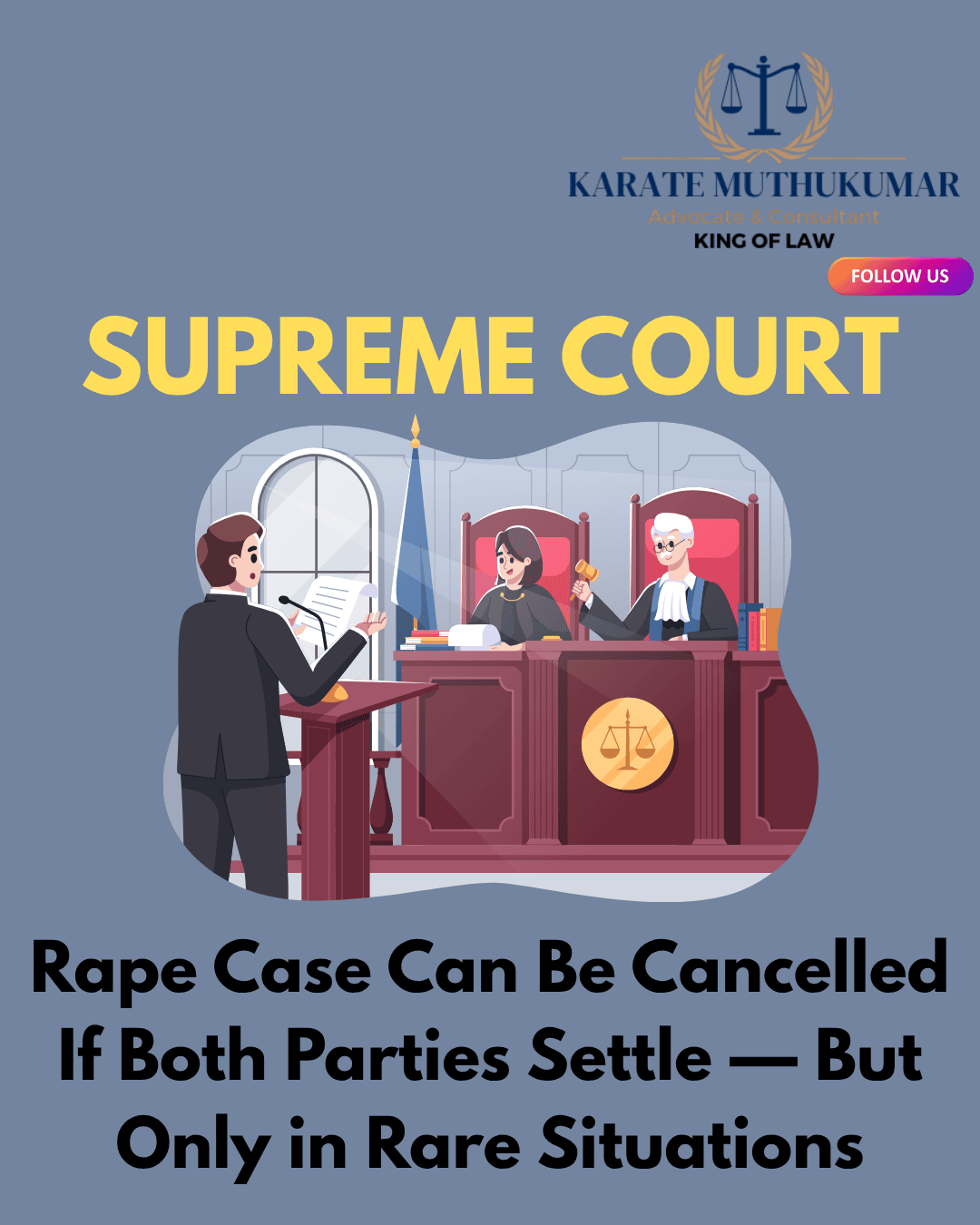⚖️ What Was the Case About?
A man was accused of rape. Later, the woman said she did not want to continue the case. She gave a written statement saying she had settled the matter peacefully and wanted to move on with her life. The accused asked the court to quash (cancel) the FIR under Section 482 of the Criminal Procedure Code (CrPC).
Date of Judgment: July 14, 2025
Case Name:Madhukar & Ors. vs. State of Maharashtra & Anr.
Bench: Justice Vikram Nath and Justice Sanjay Kumar

⚖️ What Was the Case About?
A man was accused of rape. Later, the woman said she did not want to continue the case. She gave a written statement saying she had settled the matter peacefully and wanted to move on with her life. The accused asked the court to quash (cancel) the FIR under Section 482 of the Criminal Procedure Code (CrPC).
📜 What Is Section 482 CrPC?
Section 482 CrPC allows High Courts to:
- Stop legal cases that are misused or unfair.
- Make sure justice is done.
- Cancel cases that serve no useful purpose.
🧑⚖️ What Did the Supreme Court Say?
The Court said:
- Rape is a serious crime, and usually such cases cannot be cancelled just because the parties settle.
- But in exceptional cases, if the woman clearly says she doesn’t want to continue and the case is not about violence or threat, the court can cancel it.
- The court must look at the facts of each case carefully.
In this case:
- The woman had consistently said she didn’t want to continue.
- She had settled the matter and was now married and living peacefully.
- Continuing the case would only cause stress and waste time.
So, the Supreme Court quashed the FIRs and said the High Court was wrong to reject the request earlier.
✅ Key Legal Points
- Section 376 IPC – Rape is a non-compoundable offence (cannot be settled by agreement).
- Section 482 CrPC – Courts can cancel cases to protect justice.
- Settlement is not enough – The court must see if continuing the case helps anyone.
- Complainant’s clear stand matters – If the woman truly wants peace, the court can consider it.
🔚 Conclusion
This judgment shows that while rape is a serious and non-compoundable offence, the courts can still use their powers to quash cases in rare and special situations. If the complainant has moved on, and continuing the case would only cause harm or distress, the court can step in to protect justice.
However, this does <b>not mean all rape cases can be settled</b>. The court will always look at the <b>facts, intentions, and impact</b> before making such a decision. This ensures that the law remains <b>fair, sensitive, and just</b> for everyone

